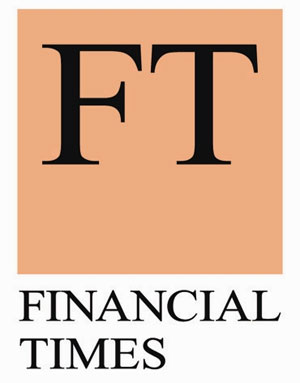
FT Article: 'Meditate to sharpen your assertive edge'
FT Article: 'Meditate to sharpen your assertive edge
 Ever multitasked or worked to the point of feeling completely overwhelmed and stressed out to the core? We've all more than likely been there. Charles Wallace, columnist for the Financial Times and Institutional Investor magazine, opens his article on July 28 in the FT (pay wall) by revealing his stressful past month and addresses the dangers of long-term work-place stress with a personal solution he has found to be most effective.
Ever multitasked or worked to the point of feeling completely overwhelmed and stressed out to the core? We've all more than likely been there. Charles Wallace, columnist for the Financial Times and Institutional Investor magazine, opens his article on July 28 in the FT (pay wall) by revealing his stressful past month and addresses the dangers of long-term work-place stress with a personal solution he has found to be most effective.
"Too many people in the US and UK resort to tranquillising drugs or sleeping pills to deal with chronic anxiety. One recent study found a 12.5 per cent annual increase in prescriptions for benzodiazapenes such as Xanax and Valium."
"My personal answer to stress has been meditation, albeit practised somewhat erratically and with mixed results over the years. I have tried several types of meditation, including mindfulness, which involves focusing your attention on your breath for certain periods of the day. But the most calming sort I have found – it’s really up to the individual – is Transcendental Meditation, which involves repeating a mantra for two, 20-minute periods a day."
And Wallace isn't the only one who has discovered this simple solution to relieve everyday strains in the demanding corporate world. He goes on to state that the $150bn hedge fund based in Connecticut, Bridgewater, has hired the foundation of famous film director and dedicated Transcendental Meditation advocate, David Lynch, to teach 400 of its employees.
What other benefits do executives experience after learning TM? Executive director of the David Lynch Foundation and popular TM teacher to the celebrities, Bob Roth, recently told Wallace that "he was being increasingly sought out by Wall Street executives because TM helps people 'become more dynamic, more focused, more creative and yet not consumed by stress'."
"He emphasises that TM, which was popularised in the 1960s by The Beatles, doesn’t espouse any particular religion or philosophy and is simply a relaxation technique."
"For the sceptical, he says, there is now a considerable body of scientific research that shows that meditating helps reduce heart attacks, blood pressure and stress."
Wallace then goes on to mention that for 3 years now Richard Friedman, a professor of clinical psychiatry at New York’s renowned Weill Cornell Medical College, has been practising TM and he has found that in day-to-day urban life he is less reactive to the little things which aggravated him previously in life and is more easy going.
Will meditation make some people lose their "edge"- that aggressive, Type-A behaviour that they use to conquer opponents in the marketplace, Wallace asks?
Dr Friedman addresses this fear as well in the article stating that “they probably have more [assertiveness & initiative] than they need – it’s unlikely they will be defanged and turned into a Type-B by meditating. But they might feel less tense."
© Financial Times
Read the full article by Charles Wallace on ft.com, Financial Times (pay wall).
Charles Wallace is a columnist for the Financial Times and Institutional Investor magazine.
Details of where you can learn TM and visiting Transcendental Meditation centres throughout the UK can be found on the Offical National TM UK website.


